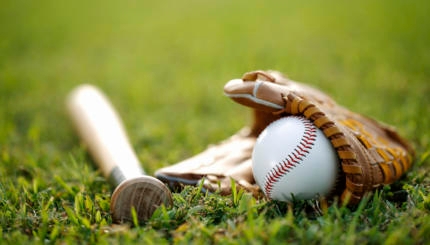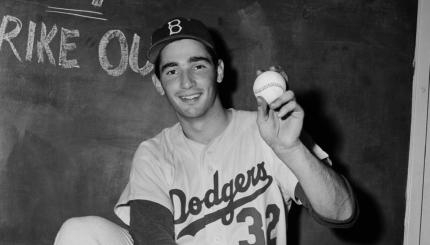On October 11th, 2007, nearly 20,000 people gathered at Madison Square Garden to watch the New York Knicks play their first pre-season home game. The game itself had little at stake for the Knicks. So why were there so many fans in attendance? They could have been there for the first look at a hopefully improved Knick franchise that had only made the playoffs once in the past six seasons. It was also the first game after head coach and general manager Isaiah Thomas had been found guilty of sexually harassing a former team executive.

However on this night, the almost 20,000 strong hooted and hollered their support for the visiting team, Maccabi Elite of Tel Aviv. The Knicks had given control of all 19,763 tickets to the Israeli franchise, and New York’s strong Jewish population responded accordingly, filling every seat in the Garden.
Three days later, in a city known more for its cheese than its Jews, an equally unusual event was taking place. In a parking lot outside of Lambeau Field, home of the NFL’s Green Bay Packers, a group of Orthodox men stood davening shaharit. When the service broke, the group noshed on a stereotypical pre-football tailgate feast of bratwurst, chicken, and hot dogs–all of course. The group was led by Rabbi Shais Taub of the Chabad Lubavitch of Wisconsin who knew that Jews needed an opportunity to experience a football game like everyone else.
Who’s Joking Now?
The 1980 classic comedy Airplane!, still sets the gold standard for Jews and sports jokes:
“Would you like something to read?” asks the stewardess.

Help us keep Jewish knowledge accessible to millions of people around the world.
Your donation to My Jewish Learning fuels endless journeys of Jewish discovery. With your help, My Jewish Learning can continue to provide nonstop opportunities for learning, connection and growth.
“Do you have anything light?”
“How about this leaflet, ‘Famous Jewish Sports Legends?'”
For many years, this was the end of the discussion when it came to Jews and sports. There were the occasional legends of Hank Greenberg and Sandy Koufax, but beyond that was nothing. Recently though, the conversations have begun to change from Jews in sports to Jews and sports.
In attendance at the Knicks-Maccabi game was Maiya Chard-Yaron, a graduate student at the Jewish Theological Seminary. “It was one of the biggest Jewish scenes I’ve ever seen,” she said, noting not only the sheer number of Jews at the game, but also the spread of Jews from different denominations and backgrounds. In Israel, Maccabi has traditionally been the team of the liberal Kibutzniks, so seeing the ultra-Orthodox cheer them on seemed ironic. “On that night,” Chard-Yaron says, “Israel and Jews had a central piece of New York culture, in sports.”
For Chard-Yaron, this combination of Jews and sports was not something unique. She played Division I college softball at Columbia University and has been a member of the Israeli National Softball team since its inception in 2003.
While at Columbia, Chard-Yaron was an active member of the school’s large Jewish population. Though she played softball on Shabbat, she made other accommodations to be more comfortable with her level of observance. After pitching a no-hitter during her senior season, she was almost embarrassed to learn that Hillel had sent out a large e-mail congratulating her on the accomplishment.
On further analysis, Chard-Yaron realized that the reason Hillel sent the announcement was the same reason Jews always seem interested in Jewish athletes. “It’s a natural affinity for a minority group to feel a connection to one of their own who’s succeeding in something that’s well known and popular.” In this case, Columbia’s Jewish community was viewing her the same way that she watched Shawn Green, an outfielder for the New York Mets and one of the most well-known current Jewish athletes. “When he was on the Dodgers and they played the Padres, I rooted for the Padres, but didn’t mind it if Green went 4-5 with a home run,” she said.
“Jewish for Sports Purposes”
Keeping track of the short list of Jewish athletes is the Jewish Sports Review. Run out of Los Angeles by co-publishers and editors Ephraim Moxson and Shel Wallman, the Review maintains the most complete and accurate list of Jewish athletes. Around in its current form since 1997, the magazine relies on considerable research to keep its 900 subscribers updated on which athletes are Jewish and which Jewish-athletes are good. The Review covers each of the major professional sports as well as many college sports putting out its own all-star and all-America teams each season.
Simplifying the debate of who is a Jew, Moxson has a phrase he uses as his standard for printing, “Jewish for sports purposes.” Defining this further, Moxson says that to qualify as a Jew for the Review, an athlete must have at least one Jewish parent and not practice any other religion. The magazine speaks to the athlete, a family member, or a coach before publishing that someone is Jewish. The research comes in a variety of ways. First, scanning online team rosters for Jewish sounding names and heavily Jewish hometowns helps to identify possibilities.
In many instances though, an athlete’s Judaism is brought to the attention of the Review by the most knowledgeable of sources–parents and grandparents. Jon Scheyer, a regular on the Duke University basketball team and a member of the ACC All-Freshman Team last year, was found when his proud grandmother called the Review while Scheyer was still a high school student in suburban Chicago.
“It’s a fun magazine to put out,” Moxson says. As to why he’ll spend three hours a day doing research, Moxson has a simple answer, “I’m proud of what I am… Jews are probably the best fans in the world.”
Jewish Heritage Day
It’s not just the players’ Judaism that is gaining attention. Teams are making concerted efforts to be welcoming and accommodating to Jewish fans, hosting special nights to attract the Jewish population. In recent seasons the Florida Marlins, New York Mets, and Philadelphia Phillies have held Jewish Heritage Nights to reach out to the local Jewish communities. At the San Francisco Giants’ Jewish Heritage Night in 2006, Rabbi Yosef Langer of Chabad of San Francisco was deemed the “Rally Rabbi” as he sounded a in an attempt to rally the fans. Of course attendees could pick up their free Rally Rabbi boblehead as well.
Roni Raab is director of The Jewish Heritage Day Foundation, which works with the Florida Marlins to put together Jewish Heritage Day in Miami. While it began as a proposed Israel Day, Jewish Heritage Day became an event to benefit day school education in South Florida. Raab was not expecting the event to turn a profit immediately, and was surprised to see money coming back to each of the participating schools in year one.
Leading up to the event, each school tries to sell the most tickets to the game, with the winning school earning a visit from the Marlins mascot. At the game itself, live bands perform Jewish music, and kosher food is available throughout the stadium. Hatikvah, Israel’s national anthem, is sung along with the Star Spangled Banner prior to the first pitch, and recently a pair of El-Al round-trip tickets to Tel Aviv was raffled off to a lucky Jewish Heritage Day participant.
In its brief existence in Miami, Jewish Heritage Day has been a big success with ticket sales topping out at 1,500 a year. But even with the tremendous success the event has had thus far, Raab is not satisfied. “It’s a great way to bring the entire community together and hopefully one day we’ll sell out the stadium,” he says. “What a great statement of Jewish pride that would be, and every city should have one.”
Get Your Hot Dogs Here
Kosher food is helping to keep more Jews coming to the ballpark on regular nights. At eight stadiums along the East Coast, kosher food is available on a daily basis. “I know how it felt when I was younger and there was nothing to eat,” says Jonathan Katz, President and CEO of Kosher Sports Inc. In 2003 he founded the company and opened a kosher food stand at Giants Stadium. While the stand there is no longer in operation, Katz has opened stands at six professional arenas as well as the USTA National Tennis Center.
The stands have been well received in each location. Fans say that beyond attracting business with the kosher food, the food itself is better quality than most other ballpark options. Perhaps the most important factor though is that the price for kosher food is comparable to the prices of other stadium food.
As a final courtesy to Jews at the ballpark, at each of the Kosher Sports stands, there is a designated time every day for fans to gather and daven. While attendance for maariv at some parks can be a struggle, about 100 people gather at Shea Stadium each game for the nightly service. “It’s nice to service the community, to give back to the community,” Katz says.
The once seemingly separate worlds of Judaism and sports are quickly drawing closer together. Both the number and prominence of Jewish athletes are growing, as well as the visibility of Jewish sports fans. Through a variety of forms, the sports community is continuing to become more welcoming and appealing to the Jewish community. And while it still in some ways is difficult, the connection is becoming stronger.
“It’s hard to have a foot in both worlds,” Maiya Chard-Yaron says. “But it’s doable.”


